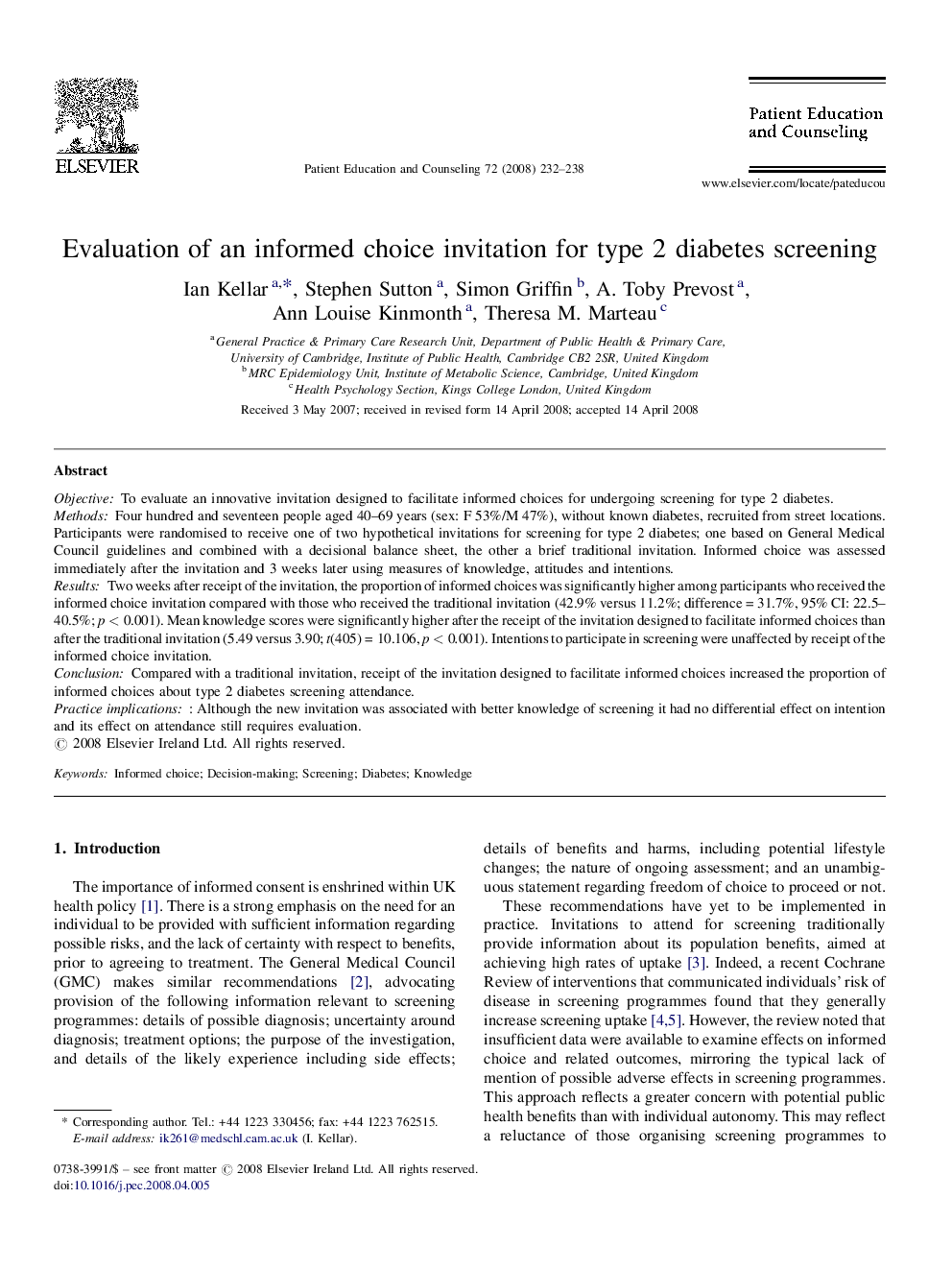| Article ID | Journal | Published Year | Pages | File Type |
|---|---|---|---|---|
| 3815349 | Patient Education and Counseling | 2008 | 7 Pages |
ObjectiveTo evaluate an innovative invitation designed to facilitate informed choices for undergoing screening for type 2 diabetes.MethodsFour hundred and seventeen people aged 40–69 years (sex: F 53%/M 47%), without known diabetes, recruited from street locations. Participants were randomised to receive one of two hypothetical invitations for screening for type 2 diabetes; one based on General Medical Council guidelines and combined with a decisional balance sheet, the other a brief traditional invitation. Informed choice was assessed immediately after the invitation and 3 weeks later using measures of knowledge, attitudes and intentions.ResultsTwo weeks after receipt of the invitation, the proportion of informed choices was significantly higher among participants who received the informed choice invitation compared with those who received the traditional invitation (42.9% versus 11.2%; difference = 31.7%, 95% CI: 22.5–40.5%; p < 0.001). Mean knowledge scores were significantly higher after the receipt of the invitation designed to facilitate informed choices than after the traditional invitation (5.49 versus 3.90; t(405) = 10.106, p < 0.001). Intentions to participate in screening were unaffected by receipt of the informed choice invitation.ConclusionCompared with a traditional invitation, receipt of the invitation designed to facilitate informed choices increased the proportion of informed choices about type 2 diabetes screening attendance.Practice implications: Although the new invitation was associated with better knowledge of screening it had no differential effect on intention and its effect on attendance still requires evaluation.
